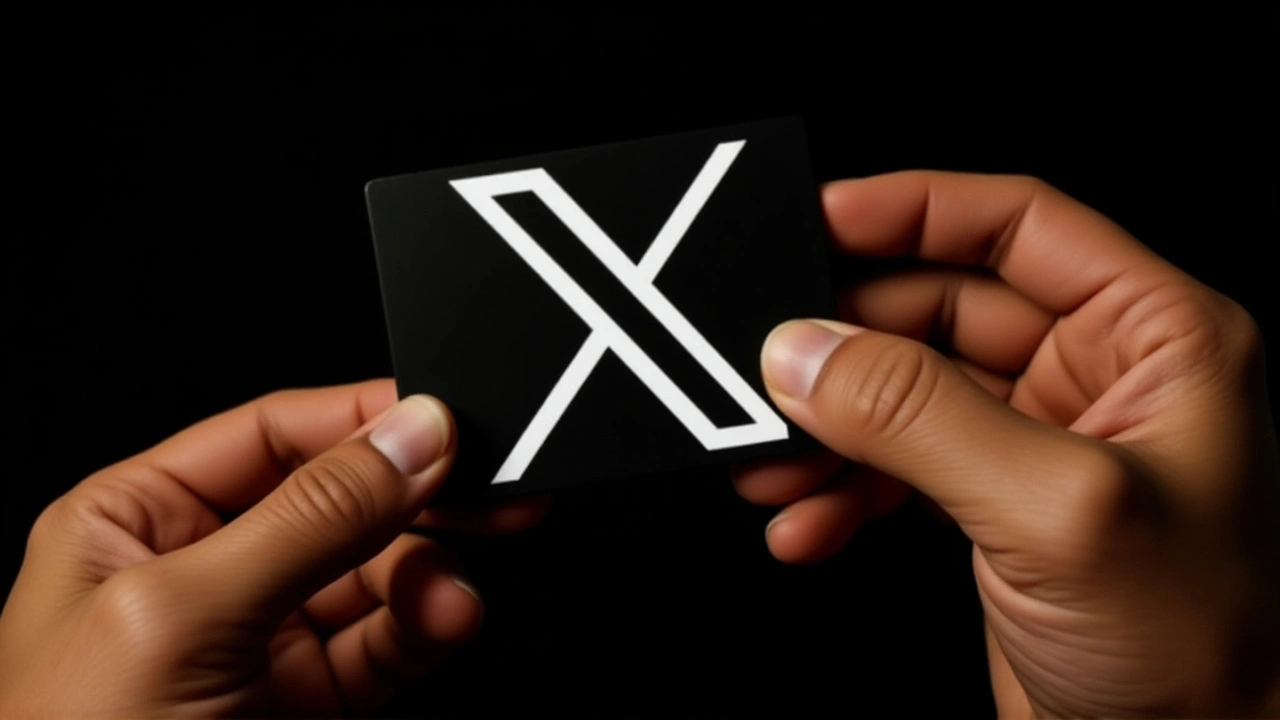When X rolled out its new Chat feature on November 18, 2025, it didn’t just update a tool—it rebuilt the foundation of private communication on the platform. For millions who still remember Twitter’s clunky, unencrypted DMs, this feels like the first real step toward making X a secure space for personal conversation. The upgrade replaces the old Direct Messages system entirely, adding disappearing messages, voice and video calls, and an "unsend" function—all locked behind end-to-end encryption that keeps keys on users’ devices, not X’s servers. Here’s the thing: this isn’t just a feature drop. It’s a strategic pivot.
How Chat Works: Keys, Pins, and Zero Trust
Entering Chat for the first time triggers a simple but powerful process: your device generates a unique public-private key pair. You’re then asked to set a PIN—something only you know, and crucially, something that never leaves your phone or computer. That PIN unlocks your private key, which is stored securely on X’s infrastructure but remains useless without it. According to X’s official help docs, every message, link, and reaction gets encrypted before it leaves your screen. Even if someone broke into X’s servers, they’d see only scrambled data. The system uses per-conversation keys to encrypt the actual content, while the public-private pair securely exchanges those keys between users. It’s not perfect, but it’s miles ahead of what came before.
Want to delete a message you sent? Just tap "unsend." It disappears from the recipient’s inbox too. No trace. No screenshot loophole—unless they took one before you hit delete. And if you leave a conversation? You can’t stop someone from messaging you again, encrypted or not. That’s intentional. X isn’t trying to be a prison guard; it’s trying to be a secure mailbox.
Why Now? The Privacy Pressure Cooker
Since Elon Musk bought X in October 2022, the platform has been a rollercoaster of changes—some chaotic, some brilliant. But privacy? That was a glaring gap. Competitors like Signal and WhatsApp have spent years building trust around encryption. Telegram? Still not end-to-end by default. And Facebook Messenger? A mess. X’s old DMs were basically unencrypted email with emojis. For years, journalists, activists, and everyday users worried about surveillance, doxxing, or corporate data harvesting. Now, with Chat, X is trying to win back credibility. The timing isn’t random. With global regulators cracking down on data practices and users demanding more control, this is X’s answer to "prove you’re serious."
And they’re not just talking. X has promised to open-source the code and publish a technical whitepaper later this year. No date yet—but the commitment is there. That’s rare for a social media giant. Most companies bury their encryption details in legalese. X is offering transparency. Whether they follow through? That’s the next chapter.
What’s Missing: Android, Executives, and Accountability
Right now, Chat is live on iOS and the web. Android users are being told it’s "coming soon." That’s a problem. Over 70% of global smartphone users run Android. Delaying rollout there feels like leaving half your users behind. It’s also odd that no executive—no CTO, no product lead—was quoted in any of the reports. No Elon Musk tweet. No press release with a quote from a VP. It’s like X is treating this like a quiet software update, not a flagship product launch. That’s either humility… or hesitation.
And what about the PIN? It’s smart—no server-side key storage—but what if you forget it? What if you lose your phone? X says logging out removes your private key. That means if you ever need to recover your encrypted messages on a new device, you better remember that PIN. No recovery email. No backup. No "forgot PIN?" button. That’s security at its most unforgiving.
The Bigger Picture: Encryption as a Competitive Edge
This move could redefine X’s identity. It’s no longer just a place for viral tweets and political flame wars. With Chat, it’s positioning itself as a private communication hub—think WhatsApp meets Signal, but embedded in a platform with 600 million monthly users. Imagine journalists coordinating from war zones. Therapists messaging clients. Activists sharing evidence. All protected. That’s powerful.
But here’s the twist: encryption alone won’t save X. The platform still struggles with moderation, misinformation, and bot accounts. If someone sends you a harmful message via Chat, you can’t report it to X—not without breaking the encryption. That’s a trade-off. Privacy doesn’t mean safety. And users are starting to notice.
What’s Next? The Whitepaper and the Android Wait
The next 90 days will tell us a lot. Will X actually release that whitepaper? Will they publish third-party audits? Will Android finally get the update? And most importantly—will users trust it?
Early adopters are already testing it. On Reddit, users report voice calls work smoothly, even over spotty networks. Disappearing messages vanish exactly as promised. The interface is clean, almost minimalist. But one user wrote: "I like the encryption. But I’m still scared to use it for anything real. What if X changes the rules tomorrow?" That’s the real challenge now: convincing people that this isn’t just marketing.
Frequently Asked Questions
How do I know my messages are truly encrypted in X Chat?
X Chat uses end-to-end encryption where messages are encrypted on your device before leaving, and only decrypted on the recipient’s device. Each conversation has a unique key, and your private encryption key is protected by a PIN you set—something X says never leaves your device. You can verify encryption status by checking the lock icon next to a contact in Chat. No one, not even X, can read your messages without that PIN.
What happens if I forget my Chat PIN?
If you forget your PIN, you lose access to all encrypted messages and history on that device. Logging out removes your private key from X’s servers, and there’s no recovery option. You’ll need to reset Chat entirely, which means starting fresh with new keys. X offers no backup, no email recovery, and no customer service workaround. This is by design—but it’s also a major risk for users who don’t store their PIN securely.
Can I use X Chat on Android yet?
As of November 18, 2025, X Chat is available on iOS and the web, but Android support is still pending with no official release date. X has only stated it’s "coming soon." Given Android’s global dominance, this delay could hinder adoption among users in regions like Southeast Asia, Africa, and Latin America, where iOS penetration is low. Many users are already asking for a timeline.
Will X open-source the encryption code?
Yes—X has publicly committed to open-sourcing its Chat encryption implementation and releasing a technical whitepaper later in 2025. However, no specific month or date has been given. Open-sourcing would allow independent experts to verify the security claims, which is critical for trust. If they follow through, it could set a new standard for social media platforms. If they don’t, skepticism will grow.
Can I report abusive messages sent via X Chat?
No—because X cannot access the content of encrypted messages, users cannot report abusive or illegal content directly through Chat. This is a trade-off for privacy. Users are encouraged to take screenshots and report via other channels, like X’s general abuse form, but without the message content, enforcement is nearly impossible. Experts warn this creates a blind spot for child safety and harassment cases.
Does X Chat replace DMs completely?
Yes. X has confirmed Chat is a full replacement for its legacy Direct Messages system. All new messages must go through Chat. Older, unencrypted DMs are still viewable but can no longer receive new messages. Users are automatically migrated to Chat on first launch, with no option to opt out. The old DM interface has been removed from all supported platforms.






J Mavrikos
November 19, 2025 AT 17:30Finally! I’ve been waiting for this since Twitter died. Voice calls worked flawlessly over my 3G connection in rural Ontario. No lag, no dropouts. This is what real progress looks like.
Sean Brison
November 21, 2025 AT 12:11Been testing it for 48 hours. Disappearing messages actually work. No ghosting. No trace. And the UI? So clean it hurts. I’m actually using it for stuff I’d normally text my therapist. That’s saying something.
Sandy Everett
November 22, 2025 AT 18:25I’m glad they finally got encryption right, but the PIN thing? Brutal. I forgot my laptop password last month and spent three days recovering it. If I lose this PIN? Poof. All my private convos gone. No safety net. I get the security, but it feels like they’re punishing the forgetful.
Norm Rockwell
November 24, 2025 AT 13:46They’re not being transparent because they’re hiding something. Open-source? Sure. Right after they sell your metadata to the highest bidder. They’ll release the whitepaper on the same day the moon turns to cheese. This is just another trap to get you to trust them again. Don’t be fooled.
DJ Paterson
November 25, 2025 AT 11:28There’s a quiet beauty in how this system refuses to compromise. No backdoors. No corporate oversight. No one holding the keys-not even the company that built it. That’s radical. Most platforms treat privacy like a feature to toggle. X treats it like a covenant. It’s terrifying. And beautiful. But I wonder… does this make us safer, or just more isolated? If harm happens in an encrypted room, and no one can see it… does it matter?
Marrissa Davis
November 25, 2025 AT 18:47Yessss! I’ve been waiting for this forever. My mom just asked me how to use it-she’s 72 and she got it on the first try. That’s how simple it is. And the disappearing messages? Perfect for sending those ‘oops I sent that’ moments. Love it.
Dan Ripma
November 26, 2025 AT 08:07Encryption without accountability is not freedom-it is anarchy dressed in code. We traded the surveillance state for the silent void. Who polices the darkness when the light is turned off? If a child is endangered, if a threat is whispered, if a crime is plotted-can we truly say we’ve advanced if we’ve made justice impossible to see?
Stuart Sandman
November 27, 2025 AT 21:44Android delay? Of course. They’re waiting for the NSA to finish their backdoor patch. They know what’s coming. This isn’t privacy-it’s a honeypot. They want you to think you’re safe so you’ll whisper your darkest secrets… then they’ll sell them to the highest bidder. The whitepaper? A decoy. The PIN? A trap. Android won’t get it until they’ve harvested every encrypted message from iOS. Trust me. I’ve seen the leaks.
Lawrence Abiamuwe
November 28, 2025 AT 17:26This is a step forward for digital dignity. Though I hope Android comes soon-many of us in Nigeria rely on it. The PIN system is strict, but necessary. I have written it down in my safe. No emojis. No cloud. Just paper and trust. Well done, X.
Robert Shealtiel
November 29, 2025 AT 12:25They removed DMs without warning. I lost 3 years of convos with my cousin who passed last year. I didn’t even get to say goodbye one last time. Now I have to remember a PIN to talk to anyone else? I’m not using it.